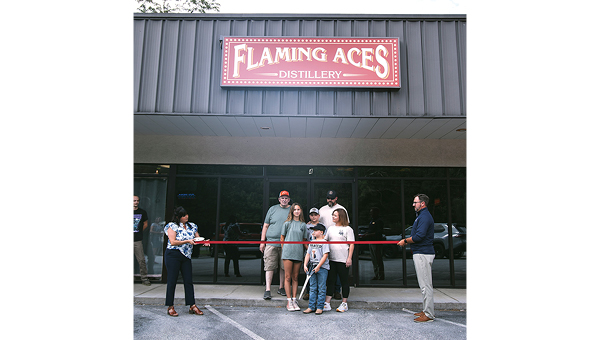Constable denies allegations brought in federal lawsuit
Published 6:01 pm Wednesday, March 28, 2018
A constable facing a pair of lawsuits related to a December 2016 traffic stop has filed his response to the allegations made in federal court.
In November 2017, Cecil H. Perry III, of Mountain City, filed a lawsuit in the U.S. District Court in Greeneville against Constable Barney Brown and Carter County seeking both compensatory and punitive damages. In the suit, Perry alleges that Brown violated his constitutional rights during a traffic stop. Perry filed a similar lawsuit days later in Carter County Circuit Court.
Brown, through his attorney, filed his response to the lawsuit in the local court in January of 2018. The constable filed his answer to the claims in federal court on Monday.
Trending
In the federal lawsuit, Perry alleges that on Dec. 2, 2016, he was traveling on Highway 19E in Carter County when Brown pulled him over for an alleged traffic violation. According to the lawsuit, Brown identified himself as a constable but was driving what appeared to be a patrol car, but offered no credentials and was wearing civilian clothing.
Perry alleges that Brown first said he could write Perry a ticket and then during their conversation said he could take Perry to jail. Perry said he asked to speak to Brown’s supervisor and at that point, Brown’s demeanor “changed drastically.”
In his response to the allegation, Brown “admits that in the course of this conversation his demeanor did change due to the increasingly aggressive demeanor of (Perry).”
During the traffic stop, Perry alleges he began to fear for his safety and tried to roll up the window on his vehicle, at which time he alleges Brown pulled a firearm and held it to his head. In his response, Brown admits to drawing his service weapon, but said it was for his safety.
“(Brown) had reached through the driver side window to obtain some paperwork from (Perry) at which time (Perry) attempted to roll the window up on his arm,” Brown’s response said. “(Brown) did pull his weapon out and ordered (Perry) to stop, because, at that point, he feared for his safety.”
Perry alleges in his lawsuit that Brown asked for his vehicle registration, so he got out of the vehicle in order to retrieve the paperwork for the officer. Perry said Brown held him at gunpoint and when he saw an approaching vehicle he ran into the roadway to flag it down due to fearing for his safety.
Trending
In his response, Brown said he had previously asked Perry for his license, registration and proof of insurance before Perry exited the vehicle.
“It is admitted that (Perry) asked to get out of the car,” Brown’s response said. “However, (Perry), without warning forcibly opened the door, striking (Brown) and thereby pushing him out of the way.”
“Immediately after opening the door (Perry) ran into the roadway and began shouting and waving at oncoming traffic,” the response continues, adding Brown denies holding Perry at gunpoint for several minutes after Perry exited the car.
In his federal lawsuit, Perry alleges that Brown violated his constitutional rights under the Fourth, Fifth, and Fourteenth Amendments to the U.S. Constitution.
In response, Brown denies that he violated Perry’s constitutional rights and asked the court to dismiss the complaint against him.
On Tuesday, U.S. District Judge Harry S. Mattice Jr. filed an order in the federal lawsuit informing both sides that a U.S. Magistrate Judge is available to conduct all proceedings in the case and to order an entry of final judgment.
“The magistrate judges do not have to delay civil cases for felony trials; therefore, firm trial dates are more likely in the event that the parties consent,” Mattice states in the order. “Counsel for all parties are ordered to discuss among themselves — and with their clients — the possibility of consenting to the exercise of a magistrate judge’s authority in this action.”
As part of the order, Mattice said attorneys in the matter are directed to “as soon as practicable, and in any event no later than 45 days from the date of this order” complete a form noting either their consent or non-consent to having the case heard by a magistrate judge.
“Should all parties consent, every effort will be made to schedule the trial promptly before the magistrate judge,” Mattice said.






